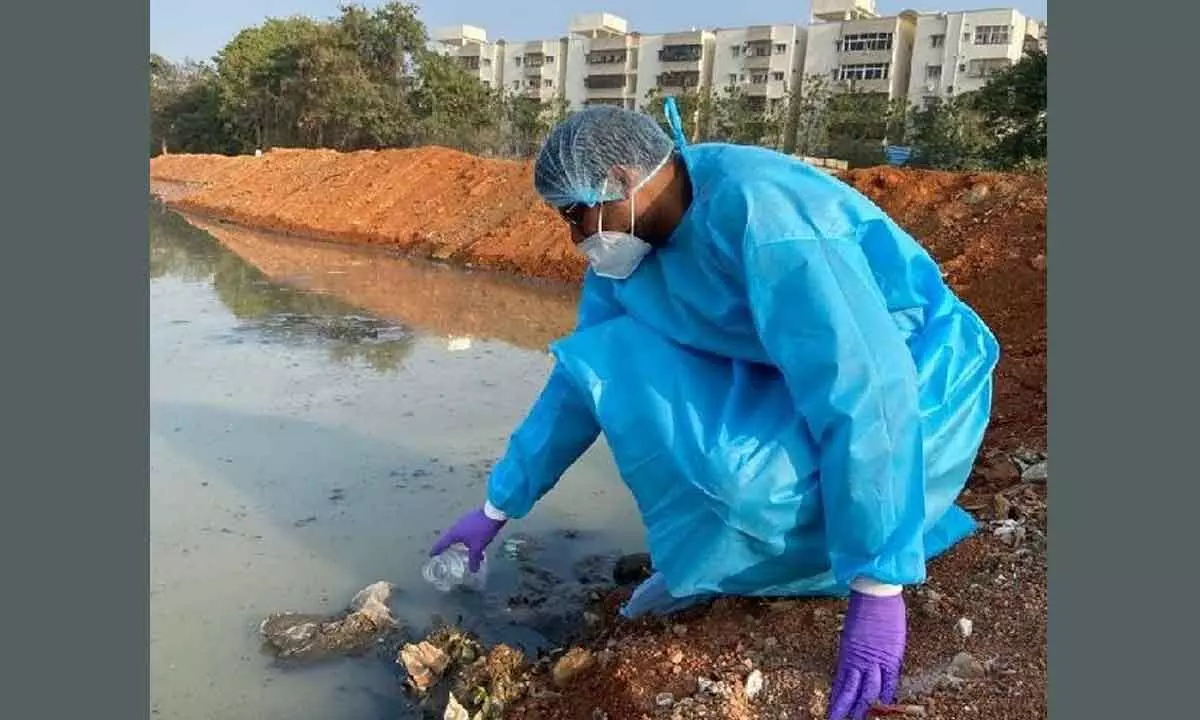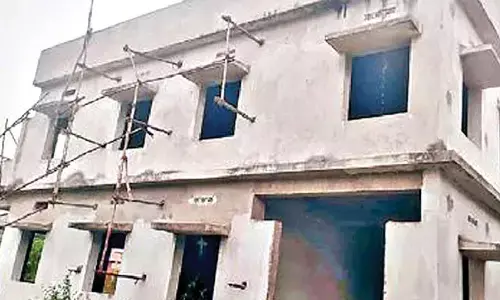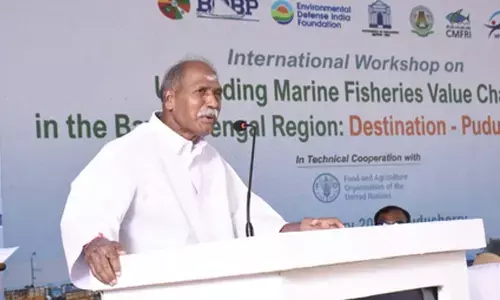Wastewater testing can help predict the spread of Covid-19 infections

Analysis reveals that total number of individuals infected with SARS-CoV-2 virus in Bengaluru city was four times higher than the number obtained via clinical tests
Bengaluru: Surveillance of pathogens in wastewater is a cost-effective technique to track and understand the viral load of an infection in a community. It provides complimentary snapshots of public health and has been recently brought to the forefront during the Covid-19 pandemic. Studies using clinical data on Covid-19 are limiting in nature due to the paucity of information available on virus variants and their abundance in the community. But in such cases, genomic surveillance studies of wastewater have proven to be successful in predicting Covid-19 infection trends and detecting viral loads in Brazil and many other South-American countries.
The functionality and cost-effectiveness of this technique to monitor the spread of infections in highly populated areas with migrating populations and limited access to public health surveillance systems make it suitable to be implemented in countries like India. Previously, similar techniques have been used in the nationwide surveys conducted to detect the presence of the polio virus.
In a new study, scientists from Tata Institute for Genetics and Society (TIGS), National Centre for Biological Sciences(NCBS) and Biome Environmental Trust have shown that genomic surveillance of wastewater can effectively be used to understand Covid-19 trends and also for early detection of new viral emergents.
The study was conducted in Bengaluru, a city with a population of 11 million inhabitants. Wastewater samples were collected once every week from 28 sewer sites across the city, between January 2022 and June 2022. A total of 422 samples were found to test positive for the presence of SARS- CoV-2 virus that causes the COVID-19 infection. The samples were then subjected to RT-qPCR tests to detect viral RNA and identify different variants of the virus within the sample. RT-qPCR method is a demonstrated economical surveillance tool used to track the dynamics and spread of infections and has been used globally to trace the spread of COVID-19. The findings of this study divulge real-time genomic surveillance of wastewater as a key tool to understand the emerging patterns of virus populations and of new virus variants in densely populated areas.
The scientists compared the viral load of the SARS-CoV-2 virus in both wastewater samples and clinical samples obtained from individuals affected by COVID-19 infections and found them to be positively correlated with each other. This confirms genomic surveillance of wastewater to be a complementary tool to gain insights into SARS-CoV-2 virus populations in a community.
"Genomic sequencing is the backbone of wastewater surveillance and needs to be done in real-time to understand the variants that cause the emerging viral load patterns in wastewater", says Dr. Farah Ishtiaq, the scientist heading the wastewater surveillance at TIGS and led the study. Genomic surveillance of wastewater was also found to act as an effective early warning mechanism. The variants BA.2.10.1 and BA.2.12, were detected in wastewater two months earlier than their detection in clinically tested samples. The research team first observed these two variants in wastewater samples in January 2022, but they did not surface in the clinically tested samples until March 2022.
"Wastewater surveillance should be used as a complementary surveillance approach to identify disease hotspots", says Dr. Uma Ramakrishnan, Professor, NCBS, involved in the study design and execution. To further test the robustness of the techniques and methods used in this study, the scientists conducted a sensitivity analysis of the data gathered. The outcomes of the sensitivity analysis suggest that the total number of individuals infected with SARS-CoV-2 virus in Bengaluru city, was four times higher than the number obtained via clinical tests.
This large variance signifies that a large number of people with the infection were not tested for it, probably because clinical tests were carried out only on individuals who exhibited symptoms of the infection, thereby leaving out those who were asymptomatic. This crucial information was shared with the city's municipality (Bruhat Bengaluru Mahanagara Palike and Bangalore Water Supply and Sewerage Board) officials, to help them make informed decisions when strategizing plans to curtail the spread of Covid-19. Based on the findings of this study, clinical testing for Covid-19 was increased in some locations in Bengaluru. The scientists believe the insights gained from this study will significantly improve public health surveillance, both for the ongoing Covid-19 pandemic and also other infections which may adversely affect in the future. "Current surveillance and infrastructure are being scaled beyond SARS-CoV-2, to other pathogens (e.g. dengue, malaria). This will also help understand major pathways and drivers of antimicrobial resistance in the environment" says Dr. Rakesh Mishra, Director, of TIGS and coordinating a multi-city centre consortium for environmental surveillance, supported by the Rockefeller Foundation.
The study titled "SARS-CoV-2 infection dynamics and genomic surveillance to detect variants in wastewater – a longitudinal study in Bengaluru, India", published in the journal Science Direct on 18 January 2023.











